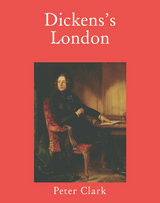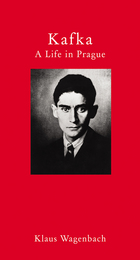
In five walks through central London, Peter Clark explores “The First Suburbs”—Camden Town, Chelsea, Greenwich, Hampstead, Highgate and Limehouse—as they feature in Dickens’s writing and illuminates the settings of Dickens’s life and his greatest works of journalism and fiction. Describing these storied spaces of today’s central London in intimate detail, Clark invites us to experience the city as it was known to Dickens and his characters. These walks take us through the locations and buildings that he interacted with and wrote about, creating an imaginative reconstruction of the Dickensian world that has been lost to time.

In Kafka's writing, Albert Camus tells us, we travel "to the limits of human thought." And in this book, the world's leading Kafka authority conducts us to the deepest reaches of Kafka's own troubled psyche, to reveal the inner workings of the man who gave his name to a central facet of modern experience, the Kafkaesque. Klaus Wagenbach, who wrote the first major critical biography of Kafka, draws upon a wealth of new and recent information to produce a concise but finely nuanced portrait of the author, an ideal introduction to this quintessential figure of modernity.
With extensive reference to Kafka's extraordinary letters and diaries, Wagenbach shows us the author of Metamorphosis and The Trial perpetually caught between the irresistible attractions of the world and his ruthless desire for solitude and isolation. It was this tension, Wagenbach tells us, that gave Kafka's writing its uncanny quality and that haunted his intense, unresolved relationships with women. And it was in this tension that both his misery and mastery inhered, making his one of the most painfully powerful voices of the experience of the twentieth century.

Drawing from a range of documents and historical materials, this is the first book specifically dedicated to the relationship between Kafka and Prague. Klaus Wagenbach’s account of Kafka’s life in the city is a meticulously researched insight into the author’s family background, his education and employment, his attitude toward the town of his birth, his literary influences, and his relationships with women. The result is a fascinating portrait of the twentieth century’s most enigmatic writer and the city that provided him with so much inspiration. W. G. Sebald recognized that “literary and life experience overlap” in Kafka’s works, and the same is true of this book.
READERS
Browse our collection.
PUBLISHERS
See BiblioVault's publisher services.
STUDENT SERVICES
Files for college accessibility offices.
UChicago Accessibility Resources
home | accessibility | search | about | contact us
BiblioVault ® 2001 - 2024
The University of Chicago Press









